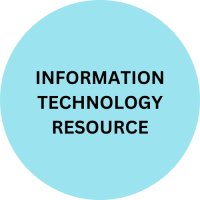Methods for Measuring Advertising Campaign Effectiveness and Attributing Conversions

Strong 8k brings an ultra-HD IPTV experience to your living room and your pocket.
In today's fast-paced digital landscape, understanding the impact of advertising campaigns is paramount for marketers striving to optimize their strategies and drive meaningful results. With the advent of sophisticated ad technology, measuring effectiveness and attributing conversions has become both more complex and more precise than ever before. In this article, we will explore various methods for evaluating advertising campaign performance and effectively attributing conversions, leveraging the power of ad technology.
Introduction to Ad Technology
Before delving into measurement methods, let's first understand the role of ad technology in modern advertising. Ad technology, often referred to as adtech, encompasses a range of tools and platforms designed to streamline the advertising process, from campaign creation and targeting to delivery and analysis. These technologies enable marketers to reach their target audiences more effectively, optimize campaign performance in real-time, and gain valuable insights into consumer behavior.
Key Metrics for Measuring Effectiveness
When evaluating the effectiveness of advertising campaigns, it's essential to focus on key performance indicators (KPIs) that align with your marketing objectives. Some common metrics include:
1. Impressions: The number of times an ad is displayed to a user.
2. Click-through Rate (CTR): The percentage of users who click on an ad after seeing it.
3. Conversion Rate: The percentage of users who complete a desired action, such as making a purchase or filling out a form, after clicking on an ad.
4. Return on Ad Spend (ROAS): The revenue generated for every dollar spent on advertising.
5. Cost per Acquisition (CPA): The average cost of acquiring a customer through advertising.
By tracking these metrics using ad technology platforms, marketers can gain insights into the performance of their campaigns and make data-driven decisions to optimize future efforts.
Attribution Models
Attributing conversions to specific advertising touchpoints is crucial for understanding the customer journey and optimizing campaign effectiveness. Ad technology offers various attribution models, each providing a different perspective on how conversions are influenced. Some common attribution models include:
1. Last Click Attribution: Attributes conversions to the last interaction before a conversion occurs. While simple, this model may overlook other touchpoints that contributed to the conversion.
2. First Click Attribution: Attributes conversions to the first interaction in the customer journey. This model provides insight into initial engagement but may undervalue subsequent touchpoints.
3. Linear Attribution: Distributes conversion credit evenly across all touchpoints in the customer journey. This model offers a more holistic view of campaign effectiveness but may oversimplify complex conversion paths.
4. Time Decay Attribution: Gives more credit to touchpoints that occur closer to the time of conversion. This model acknowledges the influence of recent interactions while still considering earlier touchpoints.
5. Algorithmic Attribution: Utilizes machine learning algorithms to analyze multiple touchpoints and assign credit based on their relative impact. This advanced model offers greater flexibility and accuracy but requires robust data and expertise to implement effectively.
Utilizing Ad Technology for Measurement
Ad technology platforms play a crucial role in implementing and optimizing these measurement methods. By leveraging features such as pixel tracking, conversion tracking, and multi-touch attribution modeling, marketers can gain granular insights into campaign performance and attribute conversions accurately.
Infotech's advanced ad technology solutions offer marketers a comprehensive toolkit for measuring campaign effectiveness and attributing conversions. With robust tracking capabilities and customizable attribution models, Infotech empowers marketers to optimize their advertising strategies and maximize ROI.
Conclusion
In today's digital age, measuring the effectiveness of advertising campaigns and attributing conversions is essential for driving meaningful results. By leveraging ad technology and utilizing advanced measurement methods, marketers can gain valuable insights into campaign performance, optimize their strategies, and maximize ROI. With Infotech's innovative solutions, marketers have the tools they need to succeed in an ever-evolving advertising landscape.
Note: IndiBlogHub features both user-submitted and editorial content. We do not verify third-party contributions. Read our Disclaimer and Privacy Policyfor details.


